EXCELLENCE & ACCESS
GIVING THROUGH BU LAW

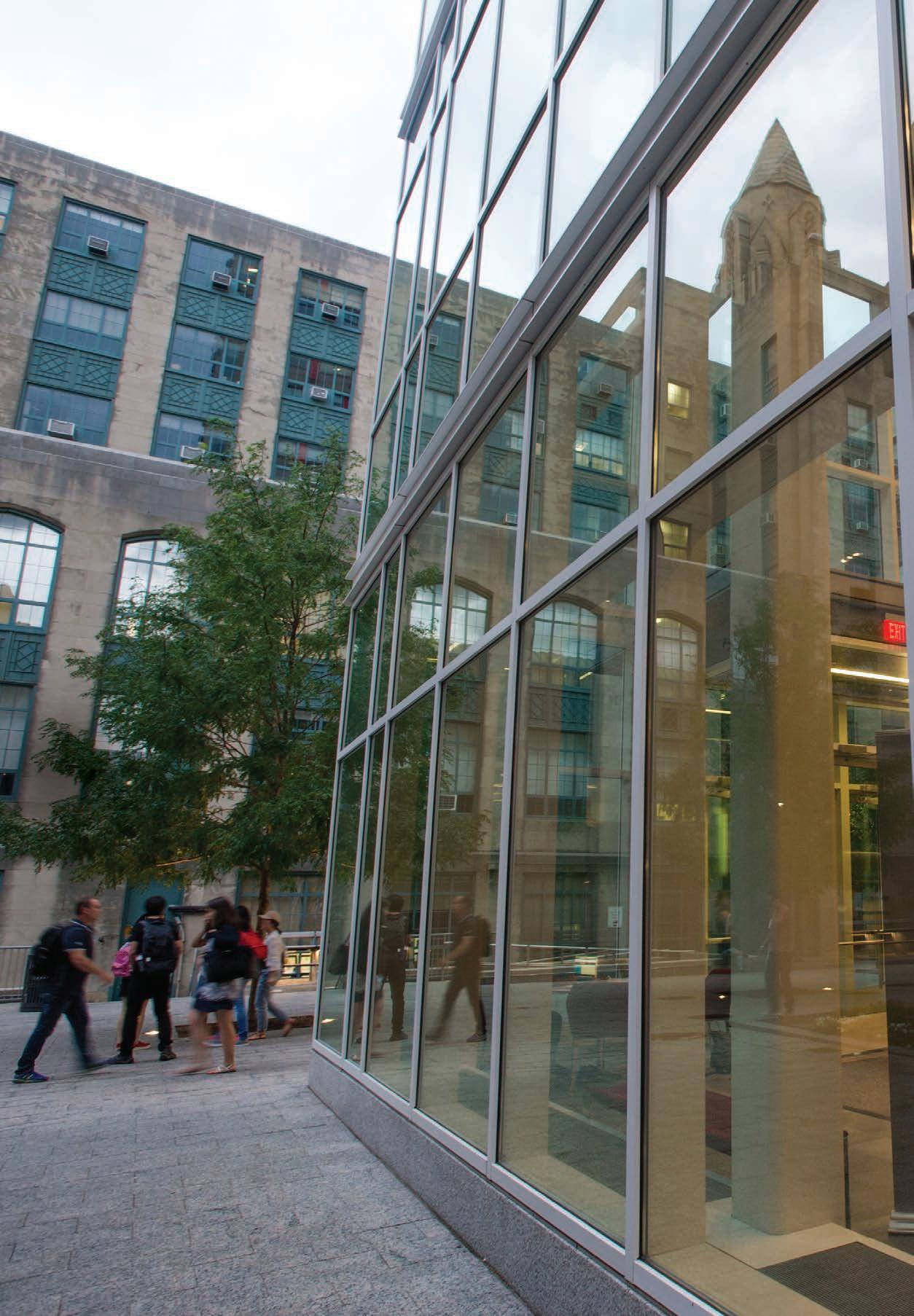



We have always had proud traditions, high aspirations, outstanding faculty, stellar students, and trailblazing alumni. Today, invigorated by the recent celebration of our school’s 150th anniversary, we remain proud of our best traditions and continue to raise our sights.
And we’re in a good position to do so. Our faculty are ranked consistently at or near the top of law professors in the US. Our students—nearly 750 JD candidates, and some 250 LLM candidates and students in other programs—are more impressive each year. For example, our JD acceptance rate dropped by more than half from 37.7 percent in 2015 to 16.3 percent in 2022, while our median LSAT score increased from 162 to 170. In 2022, our entering students came from 33 states, 18 countries, and 120 colleges and universities around the world.
Our alumni are governors, senators, state and federal judges, CEOs, general counsels, diplomats, law deans, writers, teachers, managing partners in top firms, community leaders, and leading practitioners in nearly all legal specialties.
Until recently, our campus was holding us back. But it has been reborn. The Sumner M. Redstone Building—containing 15 new classrooms, a commons, and other student-oriented facilities—opened in 2014 and was named the “most impressive law school building in the world” by Best Choice Schools. A year later, a completely renovated Law Tower reopened, and its 17 floors now house our expanded law libraries, student groups and activities, clinical and advocacy programs, and faculty offices.
With an amazing student body, an engaged and accomplished alumni community, and the space needed for the best legal education possible, we are positioned for a new level of excellence.
How? First, our faculty bring their energy and ideas to bear on our curriculum, thereby shaping the minds of the next generation of lawyers. We’ve received praise from the Princeton Review for our “stunningly broad range of specialized programs for law students.” That’s true: our students can choose from more than 200 courses, concentrate in a number of focus areas, and cross-register for hundreds of classes in BU’s other schools and graduate programs. And, we continue to expand our courses and programs every day.
Angela Onwuachi-Willig
Angela Onwuachi-Willig is dean and Ryan Roth Gallo and Ernest J. Gallo Professor of Law at Boston University School of Law. A renowned legal scholar and expert in critical race theory, employment discrimination, and family law, she joined the law school as dean in August 2018. She was named the Gallo professor in February 2021.
Onwuachi-Willig—the recipient of numerous awards for scholarship and teaching over the course of her career—is committed to advancing the School of Law by focusing on excellence and access in all of the school’s programs and initiatives. She is also committed to securing the resources needed to make that vision a reality. “With the support of our alumni and friends,” she says, “we can make this great institution even greater.”

We are a place of mission and impact, fueled by energy and ideas. We are ready to move forward together.
Students can pursue one of 17 dual degrees, earning a JD and master’s degree by combining law with other graduate programs; take part in one of almost two dozen foreign-study opportunities in 18 locations around the world; and work on (and run) six nationally recognized law journals.
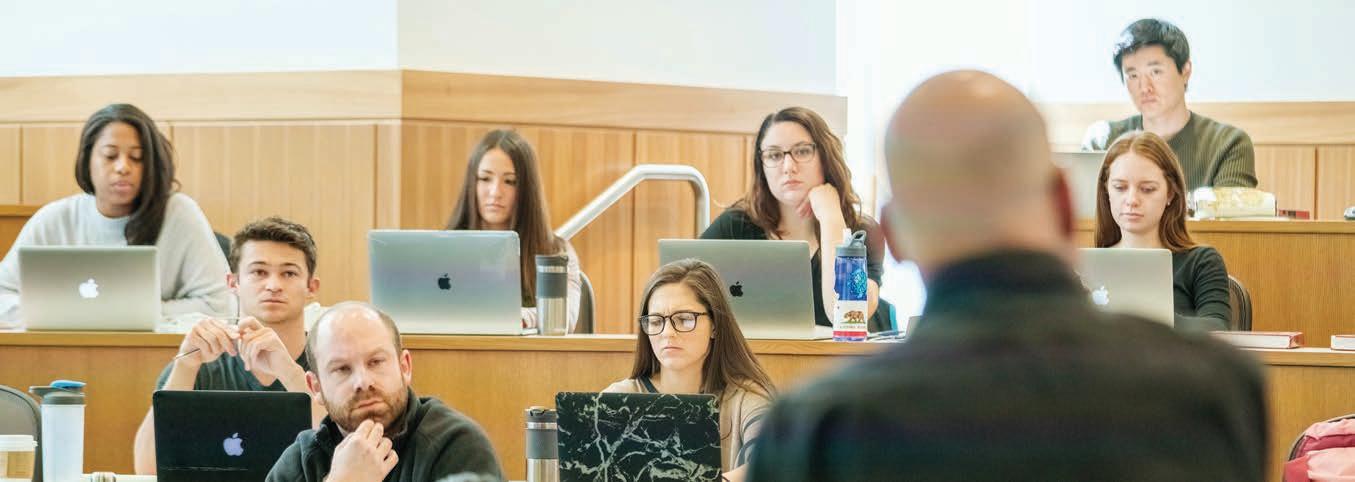
Bringing powerful legal concepts and real-world concerns together helps position our graduating students for career success. One measure: in 2021, the pass rate for BU Law graduates taking the bar examination for the first time was 94 percent. A second measure: we are tied for first place in terms of the median starting salary among graduates working in private practice as law firm associates.
Second, our faculty shape legal thought—in practice and in policymaking. They publish books, contribute articles for leading news organizations, are quoted in stories covering the biggest issues of our time, and are called as expert witnesses at congressional hearings and at statehouses throughout the country.
Simply put, our faculty exercise a profound impact in the classroom and beyond— and are ready to serve as an even more potent force for good in the years to come.
Our alumni are also a powerful force. They have argued some of the nation’s most consequential cases. They have advanced the cause of civil rights and equal justice. They have fueled innovation in industries from mass media to technology to healthcare. They have fundamentally reshaped our nation’s understanding of the law, and in some cases, literally changed the course of history.
When we unite today’s faculty and students with our global alumni, we harness the ambition and skill to advance legal education—and the law—in the US and beyond.
None of this will be easy. To take the next step, we need to continue to innovate and evolve. With your support, we will provide a more equitable education experience for all of our students. With your support, we will create more opportunities for students to experience the legal profession and, at the same time, make an impact. With your support, the School of Law will become an even greater force at the forefront of teaching and scholarship, advancing the skilled and ethical practice of law and effecting real social change.
Great faculties—aimed at the intellectual challenges of today and tomorrow—are built one hire at a time. Two recent appointments at the School of Law help make the point.
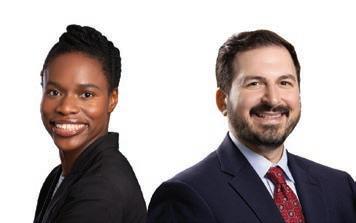
First, Boston University is proud to welcome Ngozi Okidegbe as associate professor of law and assistant professor of computing & data sciences—the first dual-appointed professor to the School of Law and the Faculty of Computing & Data Sciences. Ngozi’s research is in the areas of criminal procedure, evidence, technology, and racial justice.
Second, Woodrow Hartzog joined the faculty in 2022, and began teaching Information Privacy Law that fall. His scholarship and advocacy focus on privacy and technology law, and on the complex problems that arise when people, organizations, and governments use powerful new technologies to collect, analyze, and share human information.
“Our school and the University are proud to be on the cutting edge of how data sciences and privacy issues are reflected in and shape the legal system,” says Dean Onwuachi-Willig. “Ngozi and Woody are helping to put us there.”
It’s true: the school has a relatively small endowment. As a result, like the larger university, we are tuition-dependent. In one sense, this is a good thing: We stay carefully attuned to our markets. We meet the evolving needs of our students in a fast-changing world, both because we want to and because we have to.
Sarah R. Sherman-Stokes
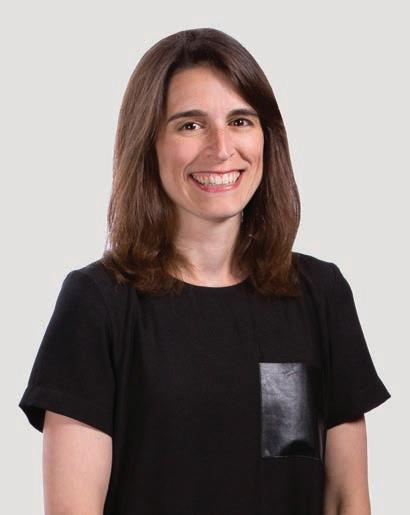
Sarah Sherman-Stokes is a clinical associate professor of law. She teaches Immigration Law and is the associate director of the Immigrants’ Rights & Human Trafficking Program, where she teaches seminars on Core Lawyering Skills and Advanced Trial Advocacy, and supervises students representing newly arrived unaccompanied children facing deportation, refugees fleeing human rights abuses, and other vulnerable immigrants in court and administrative proceedings.
Previously, Sherman-Stokes was an Equal Justice Works Fellow at the Political Asylum/Immigration Representation (PAIR) Project, where she represented noncitizens in removal proceedings, with a special focus on the representation of detained, mentally ill refugees. Her scholarship explores the intersections of immigration law and mental health and disability, as well as the interactions between immigration and the criminal justice system. In May 2020, BU President Robert Brown announced that Sherman-Stokes was that year’s winner of the Metcalf Cup and Prize for Excellence in Teaching, the University’s highest teaching honors.
In the foreseeable future, we expect many more students with limited ability to pay tuition to earn admission to our law school, which puts our delicate financial balance in jeopardy. We are resilient, but not resilient enough. In the worst scenarios, we would not be able to support our students in all the ways that would help them in their careers and also make us more competitive in the marketplace for great applicants. We would not be able to invest in the kinds of pathbreaking initiatives needed to make this school—and ultimately, the world—better.
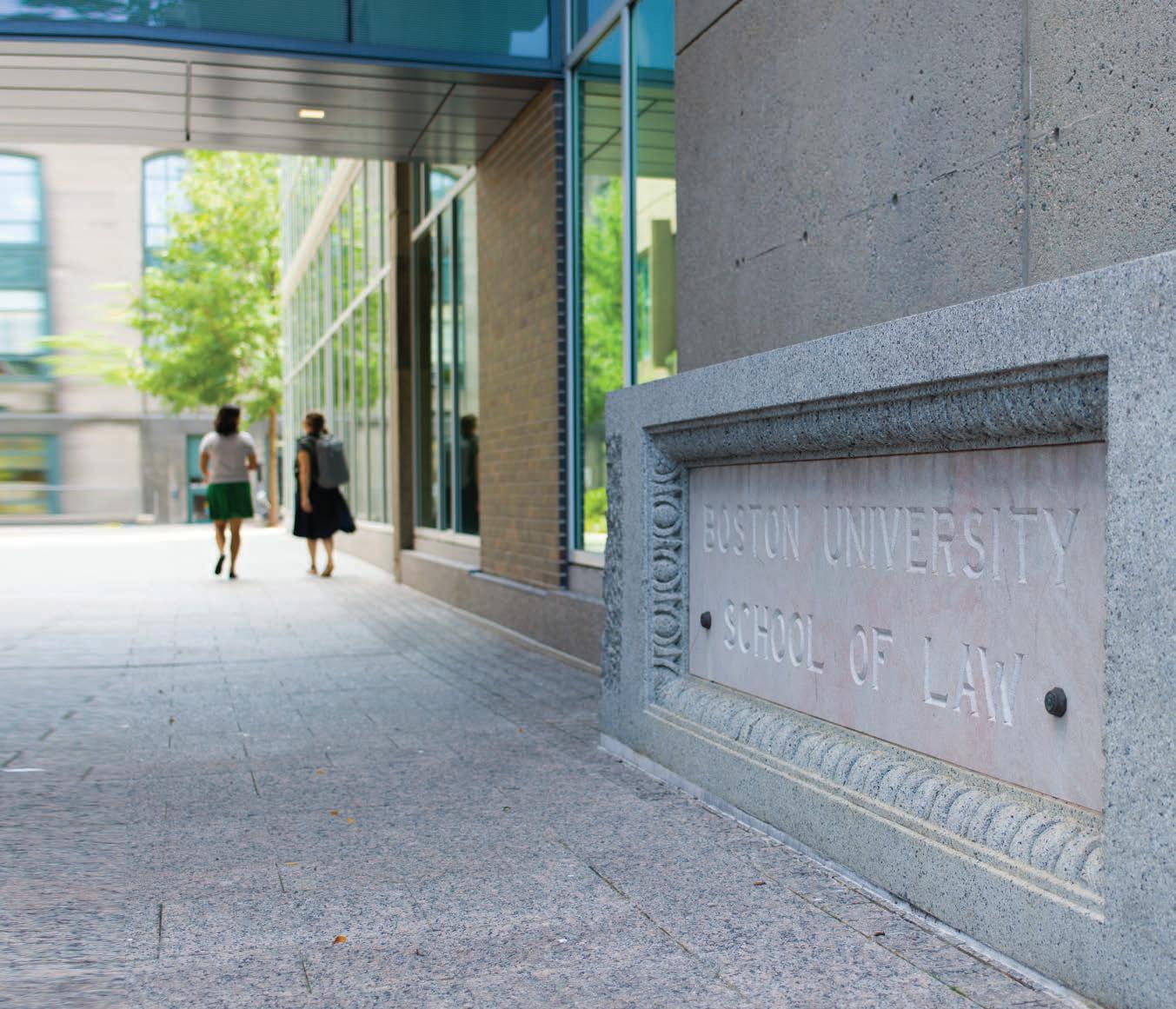
But there’s another possible future. When called upon, the alumni and other friends of this school have been notably generous. Rebuilding our campus was our priority for a decade—and our alumni stepped up and helped make that possible. They have also endowed numerous new scholarships over the past decade, and they have been increasingly generous in their annual giving.
Now, as we continue to pursue excellence through access—setting the table for having impact in a changed world—we need to put in place a stronger financial foundation.
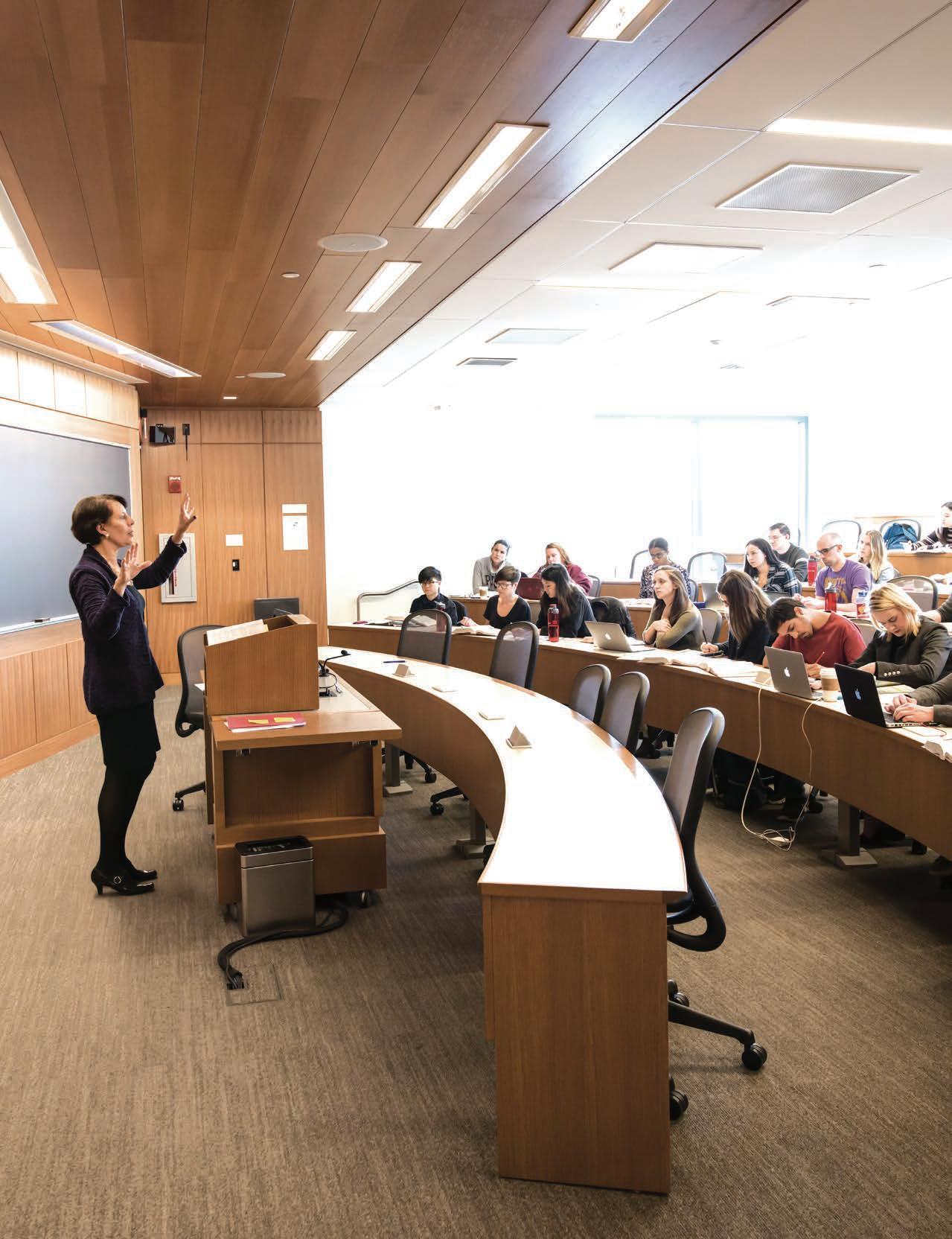
Between 2016 and 2020, our faculty ranked 23rd out of all law faculties in scholarly impact based on citations and 22nd based on median scholarly impact. They headed major professional associations and shaped policy at the local, state, and federal levels.
In short, they lead.
Kevin Outterson is the N. Neal Pike Scholar in Health and Disability Law. He teaches health law and corporate law and co-directs the Health Law Program, currently ranked #5 in the country by U.S. News & World Report. Outterson is also the executive director of Combating Antibiotic-Resistant Bacteria Biopharmaceutical Accelerator (CARB-X), a global partnership hosted at BU Law that is the world’s largest early-development pipeline of new antibiotics, vaccines, rapid diagnostics, and other products to prevent, diagnose, and treat life-threatening bacterial infections. CARB-X has already invested over $360 million in the best science from around the world, and recently received renewed support for up to $300 million more over the next 10 years.
“I think the need for CARB-X was greater than anyone could have imagined back when it was being discussed in the White House in 2015,” says Outterson. “Sometimes you get lucky with timing, and I think CARB-X being created when it was—so that we were up and running when the crisis hit—was really opportune.”
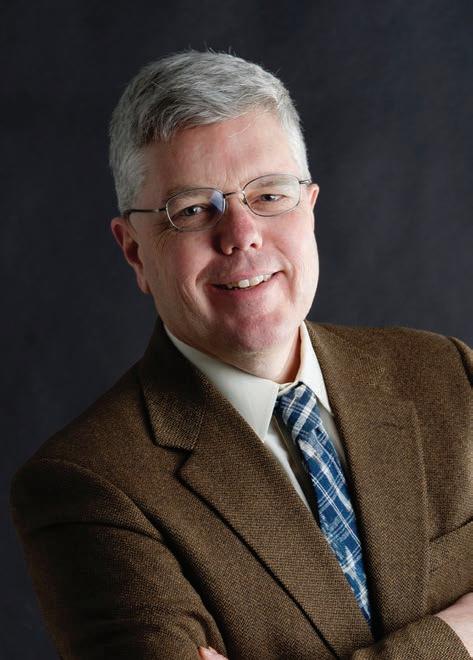
We need to secure additional endowed chairs to assist in the recruitment, retention, and recognition of the best legal minds. We have truly outstanding faculty members who gave up endowed professorships at their former institutions to join our ranks, despite knowing that there was no chair—and associated resources—waiting for them here.
Yes, our own reputation, Boston University’s strong profile, and our Boston location help us compete. But we have only five endowed professorships. Meanwhile, we already have several dozen faculty who are senior enough and productive enough to deserve this special recognition. And as we seek to retain those outstanding individuals—and recruit tomorrow’s faculty leaders—we need to be able to extend offers of endowed chairs.
At the same time, we need to provide teaching and scholarship support to our junior tenure-track faculty. These young scholars face unique challenges in the pre-tenure years of their academic career. With those challenges in mind, we provide a mentorship program designed to help them in the production and publication of high-quality scholarship, in the acquisition and enhancement of excellent teaching skills, and in setting an appropriate level of service to the institution.
There are several ways that philanthropy could support this important work. First and foremost, establishing an endowed professorship means we are better positioned to retain and recruit the very best faculty, known not only for their scholarship but also for their ability and their dedication to teaching in the classroom. Second, endowing a career-development professorship would help successive generations of promising young faculty members at a crucial point, when they seek to establish themselves as nationally recognized scholars and best-in-class teachers.
Moving up one level in the organization, we need to create centers of excellence, which help bring a legal field of study into sharper focus; define that field’s agenda, and provide students with opportunities to develop skills and deeper knowledge. A successful center serves as an unparalleled catalyst for intellectual
BU Law faculty members have a proven record of entrepreneurial academic/ institutional design and expansion—in other words, building new, innovative, and highly successful centers and programs from scratch.

For example, over the last 15 years, we’ve launched and expanded several new programs that are now thriving centers of research and practical learning, and are unique among peer institutions:
The Technology & Policy Research Initiative, co-led by James Bessen and Professor Michael Meurer,
the BU/MIT Clinics, headed by Professor Andrew Sellars, and

the Compliance Policy Clinic, led by Professor Danielle Pelfrey Duryea.
We can do more—and with generous philanthropic support, we will.
growth and opportunity, benefiting both faculty and students. At the same time, it advances the school’s mission and enhances its reputation.
Centers should be created only on strong foundations. Fortunately, we already have strong foundations upon which to build. We see a unique opportunity to establish centers in three of our most highly regarded and influential areas of academic focus—health law, intellectual property, and civil rights—and thereby have a powerful impact on those fields.
A second kind of center would be aimed at a larger societal issue that the School of Law is uniquely positioned to engage. For example, we would be pleased to establish a center on racial justice, policing, and equity, which would focus on advancing racial justice and equity in the criminal law system by fostering critical thinking through the production of first-rate, cutting-edge scholarship on these issues. In addition to helping to recruit outstanding scholars, the center would advocate for criminal law reform that can curb racial profiling and increase police accountability for the use of excessive force against civilians.
Most likely, such a center would feature an education and engagement unit consisting of many components. One might be a joint master’s degree and JD between the School of Law and the Center for Antiracist Research at Boston University, led by Professor Ibram X. Kendi, in the area of Racial Justice and Equality. This joint program would be explicitly designed to help train the next generation of antiracist, civil rights–movement lawyers.

Additional information about centers of excellence, and how they will strengthen the School of Law and advance its mission, is available upon request.
Robert L. Tsai joined the faculty in January 2021 as professor of law and teaches courses in constitutional law, presidential leadership, and individual rights. He is keenly interested in political culture, legal change, democratic design, inequality, and popular sovereignty.

Tsai’s most recent book is Practical Equality: Forging Justice in a Divided Nation (W.W. Norton 2019). Joshua Rothman, writer for The New Yorker, observed that the subject of that book was the “gap between intuition and argument—between outrage and the best response to that outrage.”
In addition to The New Yorker, Tsai’s scholarship has been featured by NPR, MSNBC, Morning Joe, The American Scholar, the Daily Beast, The Boston Globe, and the Harvard Law Review. In addition, he has served as a legal commentator on Meet the Press and MSNBC. His popular writings have appeared in The Washington Post, Politico, The Boston Globe, Slate, and Boston Review.
This goal brings together a wide range of initiatives. “Equity” is about who gets the benefit of an outstanding legal education, about the experiences our students have on campus, and about the opportunities that are available to them as they shape their legal careers.
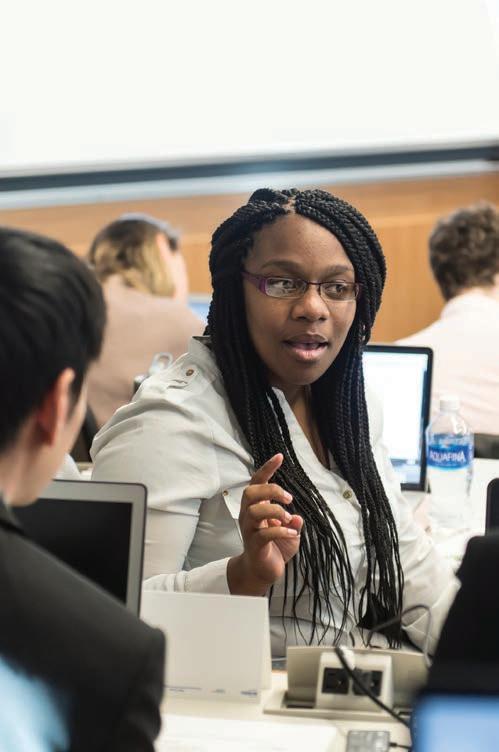
In 2021, the School of Law announced the establishment of the ASPIRE scholarship: Antiracist Scholars for Progress, Innovation, and Racial Equity. Jointly sponsored by the school, the BU Center for Antiracist Research, and Boston-area law firms and companies, the initiative will initially bring in a cohort of eight ASPIRE BU Law students each year, who will help to transform BU Law and the legal profession using antiracist knowledge and actions.
The school will recruit and prepare this exceptionally talented group of antiracist legal professionals by:
making law school more affordable
enhancing that education through antiracism training
providing each cohort of eight students with a faculty/staff mentor
placing students in summer jobs and internships at law firms and companies to gain professional experience and opportunities
“We are committed to making our outstanding legal education more accessible,” explains Dean Angela Onwuachi-Willig. Our tuition is among the lowest in our peer group, and 90 percent of our JD students receive financial aid. Critical to the success of ASPIRE will be new resources for financial aid, and this is where philanthropy will be particularly important.”
Again, we can state this goal simply: to ensure access to critical opportunities for all of our students.
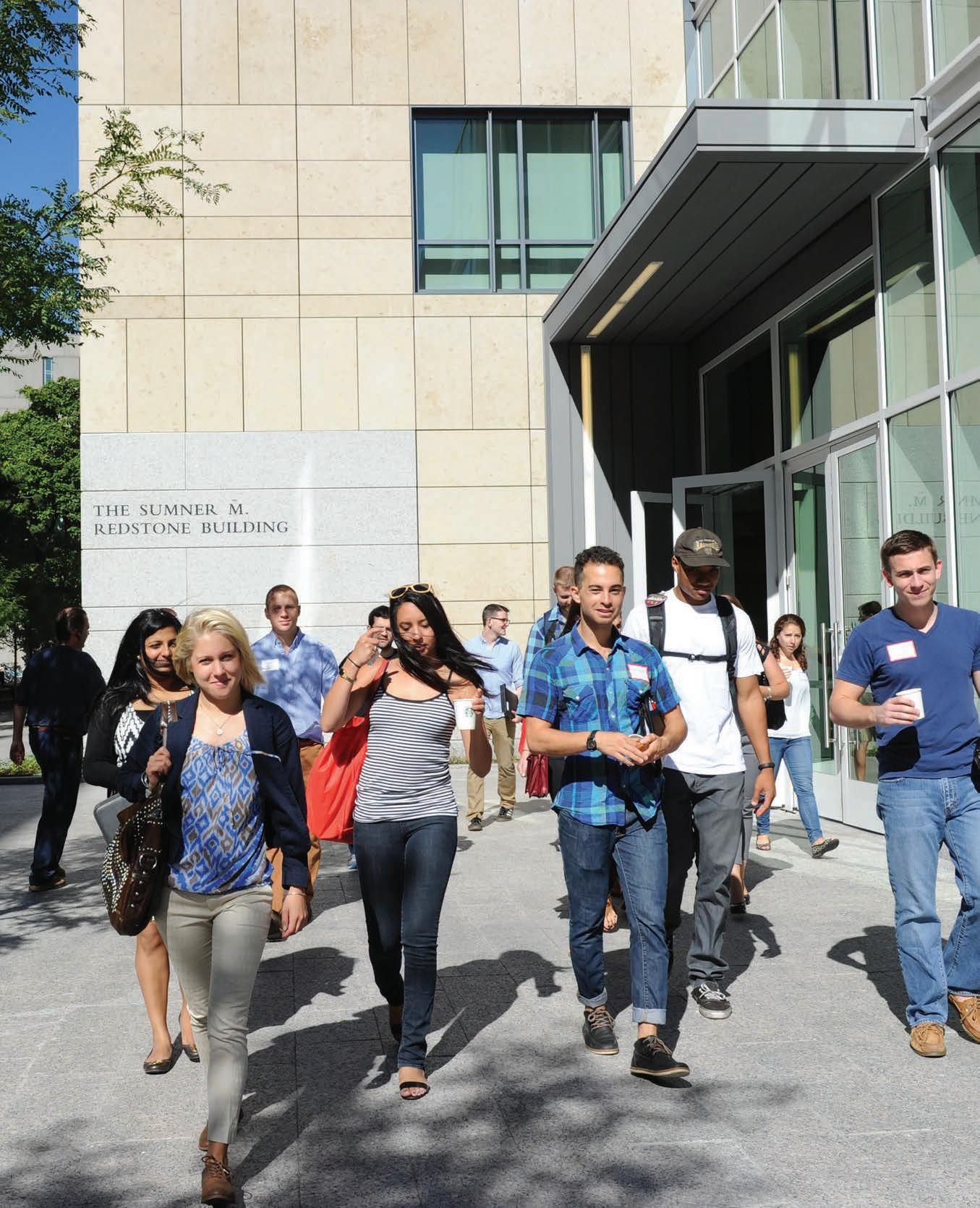
Who comes to the school? We work hard at recruiting a diverse class, in part because the presence on campus of a broader base of outstanding students vastly improves our educational offerings. But building that broader base poses challenges.
For example: One of the barriers for many students is that they lack the financial resources to visit the campus during the admissions cycle. We provide travel support to anyone who needs it. In addition, we established—in partnership with student leaders—the Mosaic Experience, which brings admitted students of color to the school to learn about Boston, the University, and the School of Law. It began with four enrollees in 2013 and has grown to several dozen in recent years. We seek to expand the size and impact of this program and increase its associated stipends and programming, which even in its current modest iteration requires at least $50,000 in annual support.
Another aspect of “who attends” is who can afford to attend. We are committed to making a legal education accessible. Toward that end, as we have mentioned, we have been cited as having the lowest tuition of any private law school in the U.S. News top 25, and 90 percent of our JD students receive financial aid. But we need to raise funds for significantly more need-based scholarships, which are among our highest priorities.
While at BU, our students can pursue a number of opportunities to broaden their horizons, hone their skills, and at the same time, secure a modest amount of income. One is the Judicial Internship Program, which places students in positions as “quasi–law clerks” to judges. In that capacity, students prepare bench memoranda and drafts of opinions, attend court proceedings, and gain insight into how judges think. Prior to 2018, there was no dedicated funding for these unpaid internships. When Dean Onwuachi-Willig committed to awarding 15 grants of $5,000, a significantly larger number of highly qualified students applied for these prestigious positions.
We also seek to offer Clinical Fellowships to students who want to spend a summer in one of our clinics. We already have a compelling model for this learning experience: the Matthew Z. Gomes Fellowship program, whereby underrepresented students are selected to work with the Entrepreneurship & IP and Technology & Cyberlaw clinics, serving the MIT and BU student communities. Securing endowed funds for such opportunities, and ensuring access for future generations of students, is critical to our mission.
Yet another is the Public Interest Project, which provides summer grants to JD students working in the public interest and in government. Many students need to earn income in the summer, and this program provides an opportunity for them to do that while at the same time gaining important real-world, professional experience.
A scholarship fund created nearly 50 years ago with a gift of $11,000 has helped fund the legal education of scores of women law students.
The donor, Sadie Lipner Shulman (LAW 1911), was a trailblazer. She graduated cum laude from BU Law at age 20 and gained admission to the bar a year later. After spending several years in private practice with her husband, in 1926 she became the first woman to serve as assistant corporation counsel for the City of Boston. Four years later, she and Emma Fall Schofield (LAW 1908)—who was Massachusetts’ first female assistant attorney general—became the first women appointed to the state bench.
Shulman was also the first woman to endow a BU Law scholarship—55 years after she had received her degree. She died in 1998 at age 107, but thanks to careful University stewardship, her endowment now exceeds $1 million—and will continue to help deserving students earn law degrees in perpetuity.
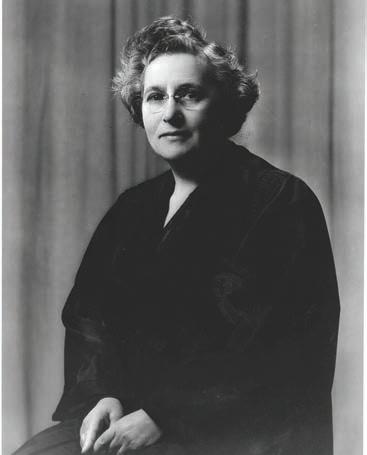
In 2022, we awarded more than 120 stipends (worth over $500,000)—a record for the program— but without further philanthropic support, we cannot guarantee funding for every interested student.
Our graduates have had greater success in recent years in securing jobs. For example, the class of 2022 saw the highest percentage of students with a job at graduation at nearly 85%—a major increase from 2018, when it was only 71%. Despite this success, we continue to seek to invest in programs that ensure our students are ready for their legal careers—both on campus and afterward. In the near term, this can take the form of assistance with bar-related costs and assistance in applying for clerkships. Students who apply to larger law firms often have their travel costs and bar-related expenses paid for by those firms, which is not true for students pursuing public-sector jobs. Similarly, students who apply for clerkships have to pay for their own travel to interviews, which may limit the geographic scope of their applications. By contributing relatively modest amounts of money at just the right juncture, we can help our students think bigger about their careers.
Another career-shaping factor—which comes to bear both before matriculation and after graduation—is our Loan Repayment Assistance Program, which makes it easier for motivated students to pursue public-interest careers. Our endowment for this purpose is only $1 million— and thus provides only a fraction of the needed resources, especially when compared to similar programs at other distinguished law schools. Again, this shortfall makes it harder for us to compete successfully for these mission-focused students.
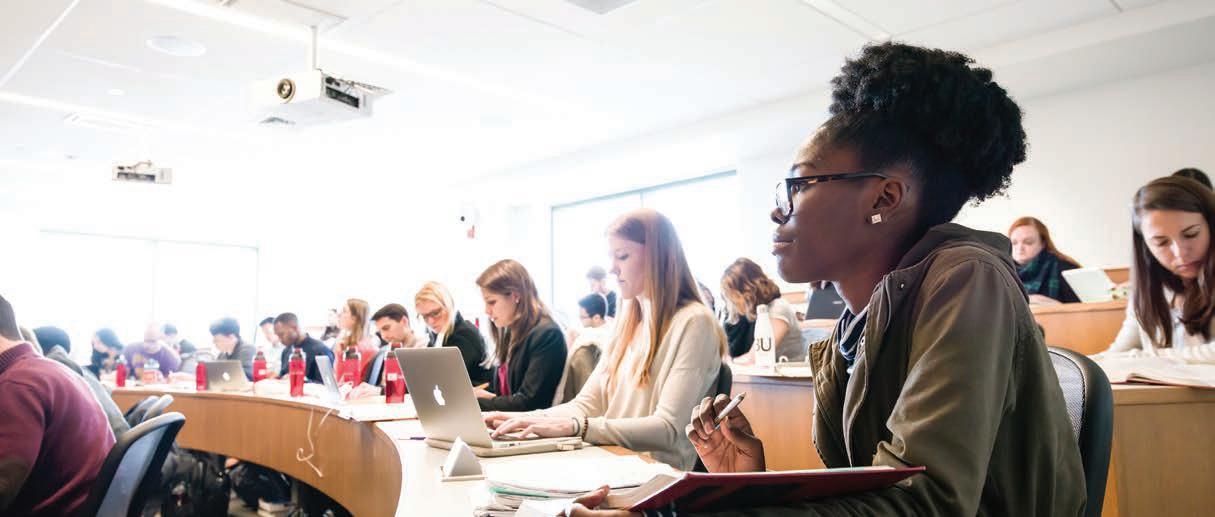
Looking to the future, the school and University are now investigating options for providing new choices for student residences. One precedent under careful review is the Medical Student Residence, completed in June 2012, which houses 208 BU medical students at below-market rates. Other leading law schools in high-rent cities offer housing options to their students, and—in this realm and others—we need to compete successfully for qualified applicants. We expect that a similar project for our school will cost $100 million or more.
And, as we have said, we are committed to building community. A residence hall or halls of our own could provide real momentum to this effort.

In 2022, Boston University School of Law celebrated its 150th anniversary. This milestone encourages us to honor and recommit to our enduring traditions.
Here are three in which we take great pride. First, we were and are a place of rigor. We established entrance requirements to ensure our students were personally and academically equipped to pursue a career in the law and embraced a three-year curriculum from Day One. Other law schools eventually followed suit.
Second, since 1872—less than a decade after the end of the Civil War— we have admitted and enrolled exceptional students regardless of race, gender, and religion. Again, other prestigious schools eventually followed our lead.
And third, we were and are an intensely practical place. We were the law school that was downtown, in the middle of Boston’s legal community. Most of our initial 18 faculty members were practicing lawyers. We were the law school that taught its students what to do, and how to do it. We are still that law school today.
outstanding practitioners.
As we move forward into our future, we seek and welcome your partnership, investment, and guidance. And we invite you not only to give to BU Law but to give through BU Law—thereby shaping the world of legal practice, policy, and ideas.
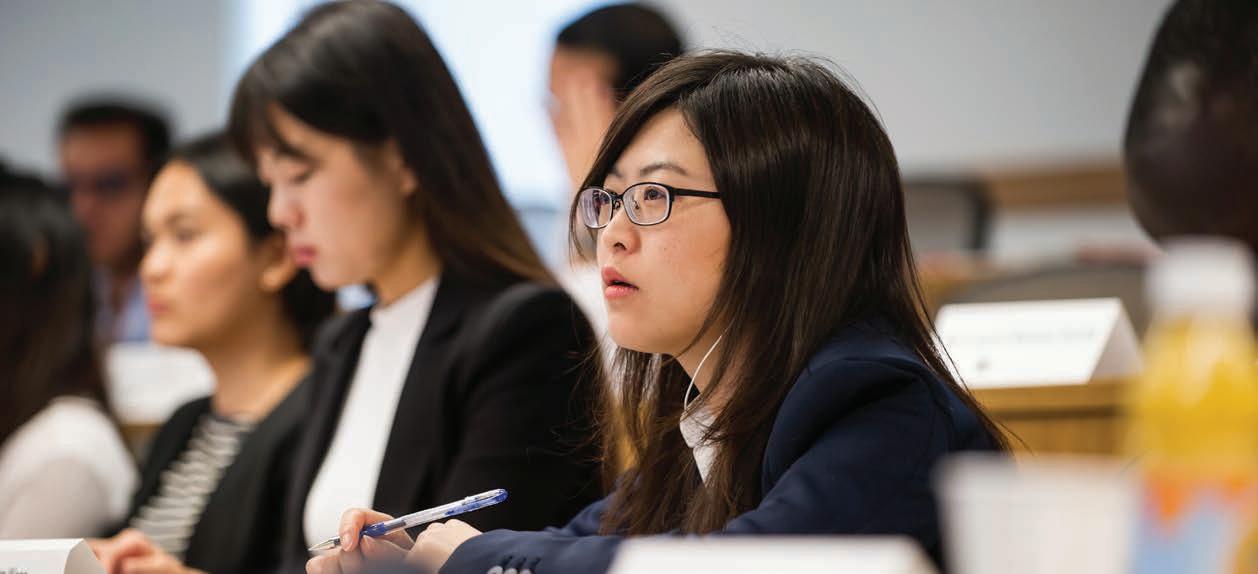
Rigorous, accessible, and practical: these are powerful attributes, and they serve us well as we pursue our mission of leading legal thought and educating the next generation of
